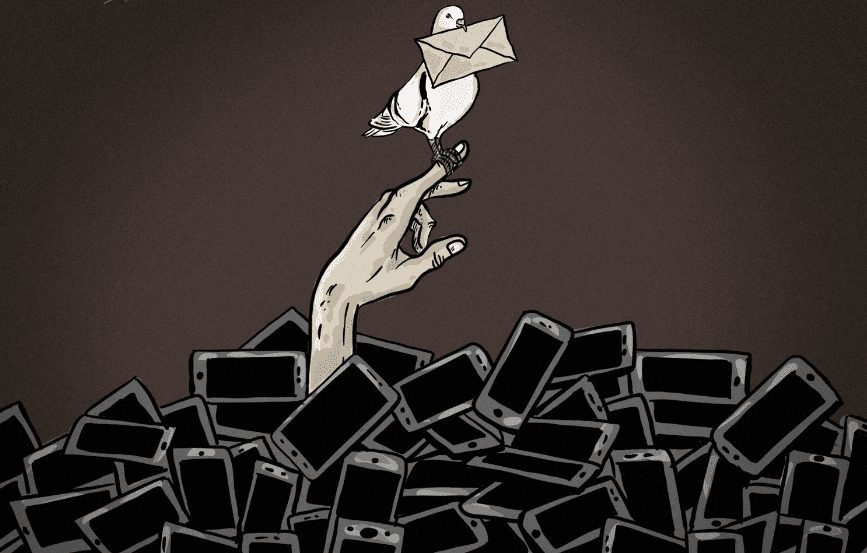Facebook’s Pro-government Purge Brings Uganda Closer To An Internet Shutdown

It’s Africa and a presidential election is around the corner: talks about internet censorship will arise, and the possibility of an actual shutdown is a huge one.
As of now the focus is on Uganda, an East African nation trying to change leadership hands away from a government that has been in power since 1986.
Yoweri Museveni’s efforts to remain in power in tandem with Ugandans’ vehemence to have Boby Wine as their new president have clashed into a plot twist for the Swahili-speaking country.
Yesterday, Facebook confirmed that it has successfully purged its platforms (Facebook, WhatsApp and Instagram) of pro-government accounts trying to manipulate public debates and spreading falsifications in favor of Museveni, 76.
Social Media On Threat
Just in: Ugandan authorities have ordered the nation’s telecom operators to block all social media platforms and messaging apps until further notice. A letter was sent from from country’s telecoms watchdog stating the order.
Thanks to Facebook’s move to maintain the peace in the controversy-torn in the landlocked country, users complained that there were unable to access their social media platform ahead of the polls.
Per reports, besides the letter, the order was first communicated via no-nonsense phone calls to the network carriers earlier in the morning (Tuesday). The calls stated clearly that the demands were a response to Facebook’s deletion of pro-government accounts.
Facebook also took down a Ugandan network linked to the country’s ministry of information. The medium was alleged to have used fake and duplicate accounts to share strong, divisive information about the upcoming elections.
Since shutting down the internet would obviously send mixed messages regarding the present Ugandan administration across the world, a social media blockage doubles as a less punitive but reasonably effective tactic.
Meanwhile, calls for the government to desist from web censorship have formed trends and hashtags, especially on Twitter. Nevertheless, Ugandans are already prepping to bypass these restrictions should they come, using VPNs.
Uganda has been in the spotlight for multiple times in the past 8 months. Apart from the elections, the country’s approach to tackling the coronavirus pandemic made the headlines, not quite propping up Museveni’s leadership approach.
The clamor for a new government is substantial. Even 86-year-old Nigerian veteran playwright and nobel laureate, Wole Soyinka, has vocalized his support for Bobi Wine, who happens to be almost thrice younger than Museveni.
Late last year, Zimbabwe, another East African nation, announced a social media law that would enact penalties to distributors of false misinformation online. Uganda has had its share of ups and down in the social media tax theme.
Latest In Africa?
For a while, Africa has been free of internet shutdowns, when looked at from the frequency perspective. Duration wise, much stays the same.
Nevertheless, in June 2020, Ethiopia switched off its internet access for close to a month in response to protests following the killing of prominent Oromo singer and activist, Hachalu Hundessa.
The same year, Togo, Burundi, Chad, Mali and Guinea has some forms of internet censorship. In the year before (2019), there were 25 documented instances of internet shutdowns in Africa, compared to 20 in 2018 and just 12 in 2017.
Uganda is no freshman to internet disruptions for political reasons. With a chokehold on the country’s affairs for almost 4 decades, the “bulldozer” president was more bound to than unlikely to restrict online access.
The opposition, whose candidate is Bobi Wine, 38, is storied to have received series of threats and unlawful treatments from their main adversary.
The last time Uganda had polls to go to, the authorities shuttered the entire social media space not once, but twice. During 2016 general elections, mobile money services were affected, as the entire blockade lasted for 4 whole days.
With the social media shutdown hold? Time will tell. Operators ordered to initiate the blockage may have the right to courts of appeal, but in practice, they hardly do.
However, last year, the courts in Zimbabwe ruled in favor of reinstating internet access after the authorities ordered for the restrictions. The government then, in response, introduced new laws that allow them have more control over the internet.
Image Courtesy: News18.com